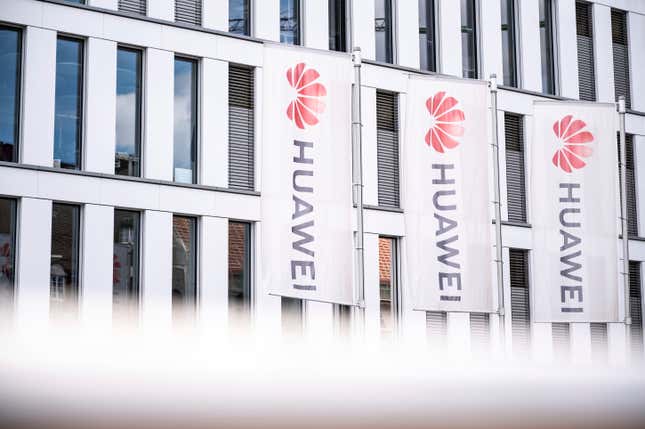
U.S. efforts to curb advanced chipmaking in China are taking a toll on one of the country’s top tech companies.
Huawei is reportedly having a hard time increasing production of its Ascend 910B artificial intelligence chip — China’s best alternative to Nvidia’s AI chips, which cannot be sold to Chinese customers under U.S. trade restrictions. The company has faced production problems in the past few weeks, The Information reported, citing unnamed people familiar with the matter. The chip fabrication machines Huawei uses to produce the advanced chips are designed for older generations of chips, and repurposing them is causing certain components to break down.
Companies in the U.S. are restricted from sending equipment for producing advanced chips to Chinese semiconductor factories as part of an effort to curb technological and military advances in the country. The U.S. has reportedly asked allies, including South Korea, to enforce similar export controls on chips.
Huawei has been on the U.S. Department of Commerce’s trade blacklist since 2019, but has been able to receive advanced chipmaking tools from U.S. companies with a special license to sell to blacklisted Chinese firms.
“Huawei is an ongoing threat to our national security,” a U.S. Commerce Department spokesperson said in a statement shared with The Information. “We remain laser-focused on tracking down any instances of attempted evasion or circumvention of our controls.”
While Huawei and its main chip manufacturer, Semiconductor Manufacturing International Corp. (SMIC), had estimated they’d soon be able to produce about 500,000 Ascend chips each year, it’s hard to determine which components need to be replaced, and both companies realized they don’t have enough to increase production, people told The Information. The slowed production could impact Chinese companies, including Baidu and Alibaba, which have turned to Huawei’s chips over ones developed by Nvidia designed to not require an export control license.
Neither Huawei nor SMIC immediately responded to a request for comment.
In August, Huawei released its Mate 60 Pro smartphone featuring a SMIC-designed Kirin 9000s chip using advanced 7-nanometer processing technology — a feat given U.S. sanctions. However, Huawei and SMIC reportedly used technology from U.S.-based Applied Materials Inc. and Lam Research Corp. to make the chips.
U.S. Secretary of Commerce Gina Raimondo later said the chip is “not nearly as good” and “years behind” chips made in the U.S.




